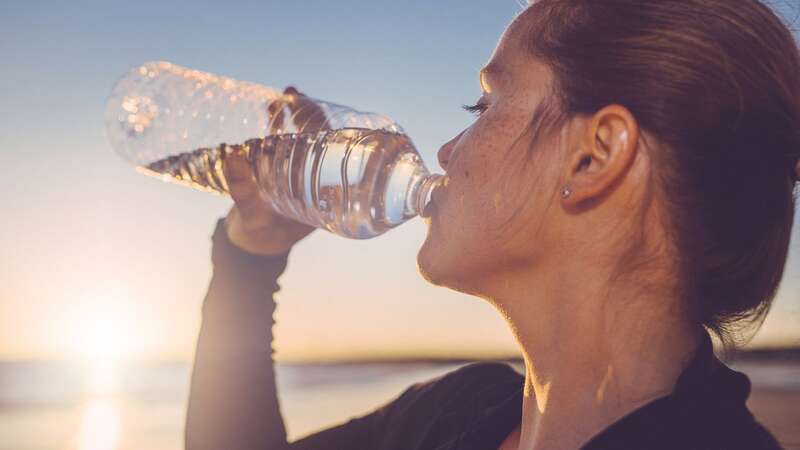

Bottled water is everywhere, with around 70 per cent of us Brits buying it.
However, when these handy drinks are exposed to elevated temperatures — be it in a sun-bathed car, beside a window, or just stored improperly — the safety and quality of the water can become a silent yet significant concern.
The innocuous act of drinking 'warm' bottled water may carry hidden health risks that many of us are unaware of. Sarah Lawson, a food safety expert from warns: “Do not drink bottled water that has been left in the sun or a hot environment, like a car. The heat can cause harmful chemicals to leach from the plastic into the water. Staying hydrated is important, but drinking water that has been left in the heat is not safe. Always keep your bottled water cool to protect your health."
Why is warm bottled water dangerous?
When bottled water heats up, chemicals from the plastic can get into the water. These chemicals, like BPA and phthalates, can be harmful if you drink them. Drinking water with these chemicals can make you feel unwell and cause health problems.
 Morrisons is slashing over 130 prices on its saver-products from today
Morrisons is slashing over 130 prices on its saver-products from today
How can you get unwell?
If you drink warm bottled water with harmful chemicals, you might experience:
- Stomach issues: You could feel nauseous or get a stomach ache.
- Headaches: These chemicals can give you a headache.
- Dizziness: Feeling lightheaded or dizzy is another symptom.
- Hormone problems: Some chemicals can mess with your hormones, causing more serious health issues over time.
Simple tips to stay safe
- Keep it cool: Always store your bottled water in a cool place. Avoid leaving it in direct sunlight.
- Use a cooler: If you’re on the go, keep your bottled water in a cooler with ice packs.
- Check the temperature: Before you drink bottled water, check if it feels warm. If it does, it’s better to get a fresh bottle.
If you can't see the poll, click here
Foods to hydrate you
Most of us are aware we need to drink around four to six cups of plain water each day to stay nice and hydrated. But this oft-touted figure doesn't really take into account the amount of liquid we can also get from our food - with some of it much better at helping to keep us watered than others.
Helpfully, plant-based subscription service revealed the most hydrating fruit and vegetables that can help you stay cool and refreshed based on water content ... but remember, you do still need to drink plenty of water!
Most hydrating fruits and vegetables based on water content
Cucumber - 96 per cent water content
Lettuce - 96 per cent
Tomatoes - 95 per cent
Spinach - 93 per cent
 McDonald's unveils major menu change with new spicy item landing this week
McDonald's unveils major menu change with new spicy item landing this week
Watermelon - 92 per cent
Mushroom - 92 per cent
Strawberries - 91 per cent
Melon- 91 per cent
Broccoli - 91 per cent
Peaches - 89 per cent
Oranges - 88 per cent
Grapes - 81 per cent